Tag: NCDEQ
40 Stories, 40 Years: Eddie Smith
March 20, 2023
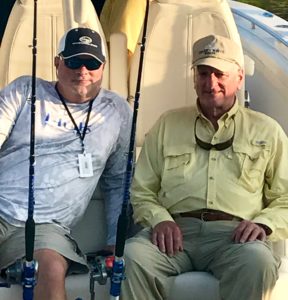
EDDIE SMITH, GRIMESLAND
When Eddie Smith moved to eastern North Carolina 53 years ago, he not only purchased a failed boat-manufacturing business, but he answered the call of the river.
“When I could sneak half a day off, I had a little 14-foot creek boat, and I would go down the Tar River to Chocowinity Bay. Back then, the sea grass went out 100 feet from the shore and was just filled with every type of marine life and any kind of fish you could find,” Smith said. “And I saw that start to decline.”
The owner of Grady White Boats was already involved with many conservation efforts — serving on national boards of organizations trying to protect water quality and preserve the natural environment for future generations — by the time the Pamlico-Tar River Foundation was founded in 1981. For Smith, PTRF’s mission aligned with his own, and that of the business he grew to become one of the most respected boatbuilding companies in the world.
“If you look at our company’s philanthropy, especially our foundation’s philanthropy, we do a pie chart of our areas of interest, and one of our biggest pieces of the pie is conservation,” Smith said. “It lines up, obviously very well, because if we don’t have healthy waterways, people are not going to want to recreate in or on them.”
In addition to supporting many organizations and projects through the years — Tar River Land Conservancy, Nature Conservancy, Coastal Land Trust, NC Coastal Federation, Coastal Conservation Association, Conservation Trust for NC, providing funding for land preservation, oyster and fish habitat restoration, and support for fundraising events — Smith joined the PTRF board early on. The early days were lean, he said.
“I would say for most of us, we had a direct tie to the Tar-Pamlico watershed. If you look back at the guys, in my mind, that did most of the heavy lifting — the Mr. Leaches and Dr. Larkins — they were passionate about it. We all had ties to the watershed and interest in it. We spent a lot time trying to figure it all out, as we were scratching to keep the lights on and pay the director,” Smith laughed.
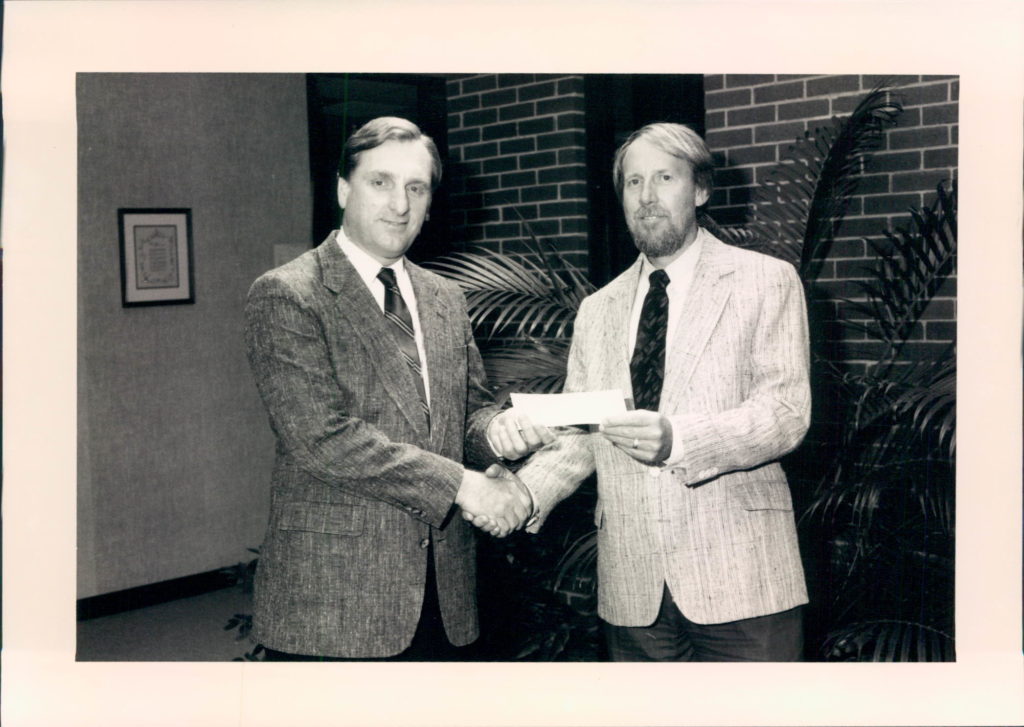
Keeping the lights on for one occasion meant Smith made a memorable donation: a ’57 Thunderbird raffled off as a fundraiser. The raffle netted PTRF more than $40,000 and made one ticket-holder a very happy classic-car owner.
The Smith family has continued its support for four decades: in 2015, son Chris served a pivotal role as a board member, guiding the merger of PTRF and Neuse River Foundation into Sound Rivers. After Hurricane Florence in 2018, the Eddie and Jo Allison Smith Family Foundation provided special funding for water-quality monitoring and flights to document impact, mapping inundated swine/poultry sites, river cleanups, a post-impact report and outreach and education regarding flooding, climate change and more.
And for the past four years, the foundation has supported Sound Rivers’ Swim Guide, which is the No. 1 reason why the water-quality notification program has been able to get off the ground and grow.
According to Smith, that’s what they do — and have done for decades.
“We tend to help the things that help the people of eastern North Carolina get started,” Smith said. “One of the things I’m proudest of is helping organizations that are protecting the waterways, protecting our resources. … People have no idea the value of the rivers and the sounds to North Carolina.”
40 Stories, 40 Years: Grace Evans
March 20, 2023
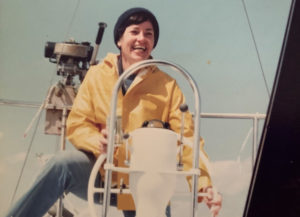
GRACE EVANS, ORIENTAL
“Most of our problems for the river have always been, and now certainly are, from the land.”
The words are those of Grace Evans, who, for more than last 40 years, was instrumental in the fight for clean water on the lower Neuse River. Grace passed away in 2021.
A lifelong sailor, the wide waters of the Neuse brought her to Oriental in the 1960s; by 1972, she decided to make the riverside town her permanent home and would go on to run two sailing schools.
“We swam, we didn’t get infections. We fished and floundered, just really enjoyed the river and didn’t think particularly of what it might contain. The river had plenty of fish and wonderful sailing,” Evans said.
But over time, the trash began piling up: creeks the dumping ground for household appliances; the river, a garbage receptacle for day-boaters. Then came the algal blooms and fish kills, and by 1980, when the Neuse River Foundation was founded, Evans was on board with its mission.
“Even though I made my living on the river, I also used it for my recreation. Every part of my life had to do with the river,” she said.
As an early member of the young environmental organization, Evans said she received an education on the urgent issues facing local waterways.
“It was just becoming aware myself of what was happening, and then making other people aware of it, too,” Evans said.
Those early members met in living rooms and in offices loaned for the occasion, before making the Neuse River Foundation’s first home in a trailer in Bridgeton. NRF petitioned the state to ban phosphates in cleaning products, the same phosphates that were throwing off the river’s natural balance, and won that battle. They built an army of creekkeepers — those who knew their waterways best — to keep tabs on polluting. Then, with a push from Evans, NRF made a pioneering step in honing its mission.
“We hired the first Riverkeeper in North Carolina, Rick Dove, and he was very effective. He was completely dedicated to the projects — nitrogen loading, animal farms, what the state was allowing different sewage treatments to do,” Evans said.
Late in life, Evans remained passionate about the work the Neuse River Foundation did, and that Sound Rivers continues today. Despite four decades of advocacy and education, she remained a firm believe that the work was far from over, than an ever-evolving array of issues continue to plague the waterways, from the sources of ongoing fish kills to sea-level rise and flooding.
“It used to be septic tanks, now it’s industrial farms,” Evans said. “What I’d like to see is much more awareness of what is happening on the land, and how what’s happening on the land affects the river.”
Water Quality Hacks at Home
March 9, 2023
Water Quality Hacks at Home
When it rains, it ultimately pours lots of bad stuff into our waterways. Stormwater runoff fills ditches, streams, creeks and rivers with pollutants such as pesticides, fertilizers, herbicides, motor oil from roads and driveways — you get the picture.
While it may same like a Herculean task to tackle water quality as a whole, it turns out everyone can play a part in reducing pollution stormwater runoff.
Here are a few good ways to make your own impact for clean water:
Lawn Care
If you’re planning to fertilize, test your soil to determine how much fertilizer you actually need. Apply fertilizers and pesticides sparingly, and do not apply before it’s supposed to rain. Compost your lawn clippings. Learn all you need to know about lawn care here!
Cut Your Pollution Contribution
There are some simple ways to cut back on polluting at home: reduce bacteria by picking up after your pets and disposing of the waste properly; wash your car on your lawn where the chemicals and soap can be absorbed and filtered by the soil instead of washing directly into a ditch or stream; maintain your septic tank — find out how here!
Gardening for Water Quality
When it comes to gardening and water quality, there are a variety of ways you can make an impact: planting/preserving trees and introducing rain gardens and rain barrels to your gardening repertoire. Rain gardens hold and slowly filter water, preventing runoff, while rain barrels and cisterns harvest rainwater to be reused. Find out more about how to install your own rain garden or install a rain barrel.
Learn other great tips and tools to reduce pollution with N.C. State Cooperative Extension’s A Gardener’s Guide to Protecting Water Quality.
And here are some more general ways you can address climate change by cutting back on your carbon footprint — individually, we can make a difference together will make a difference. If you have a tip to share, please email it to info@soundrivers.org.
- Reduce, Reuse and Recycle
Yep, that still works! - Use Water More Efficiently
Less water, less energy needed to pump to your home. - Commit to Eating More Plants and Less Meat
Livestock contribute 14.5% of global greenhouse emissions. Eat less meat and while you’re at it, choose locally sourced foods when possible and buying food with less packaging. - Install a smart thermometer to reduce energy use at home.
- Plant more trees and/or support groups that do.
- Vote!
Check out resources like vote411.org. - Be active in your community and find ways to support youth-led movements that focus on the environment.
40th Anniversary
March 9, 2023
40th Anniversary
40 years, fighting for clean water
2021 was a special year as Sound Rivers celebrated 40 years of fighting for clean water — your water.
In the fall of 2021, we premiered “A Sound River,” our 40th-anniversary film exploring Sound Rivers’ history of activism, from its humble beginnings around kitchen tables to court battles against industrial polluters, as told by the voices of Sound Rivers — its founders and partners, those continuing the fight for clean water and environmental justice, and the Riverkeepers guarding the waterways that cover nearly a quarter of North Carolina.
Rain Bennett, a Durham resident and Washington native, directed the film, drawing on Sound Rivers’ storytellers and experts to provide background and the science behind issues.
“Seeing and hearing some of the stories from the people who have been there from the beginning, it’s clear that certain things remain constant: there will always be industries and facilities and regulations and interests threatening our waterways, but there will also always be those who care deeply for the river and their community, ready to stand up to these challenges,” said former Pamlico-Tar Riverkeeper Jill Howell.
Watch the trailer for Sound Rivers today!
If you’re interested in hosting a watch party or screening the event, email us at info@soundrivers.org and we’ll be happy to make it happen.
In Their Own Voices
March 9, 2023
In Their Own Voices
For more than four decades, Sound Rivers has been an advocate for the health of the Neuse and Tar-Pamlico, as well as the communities that rely them. Though Sound Rivers may be the voice for the river, it’s the many people who have supported the clean-water cause for more than four decades who have made the greatest impact, giving generously of their time, expertise, passion and resources.
From founders of the Neuse River and Pamlico-Tar River foundations to incredible supporters who’ve joined along the way, we’ve taken a look back at some familiar faces, whose passion for the environment and the beautiful rivers, lakes and creeks of eastern North Carolina has been, and continues to be, instrumental in keeping our waters swimmable, fishable and drinkable.
Read about their work, their passions and why they became involved in our fight for clean water.
Our Stories
History
March 9, 2023
History
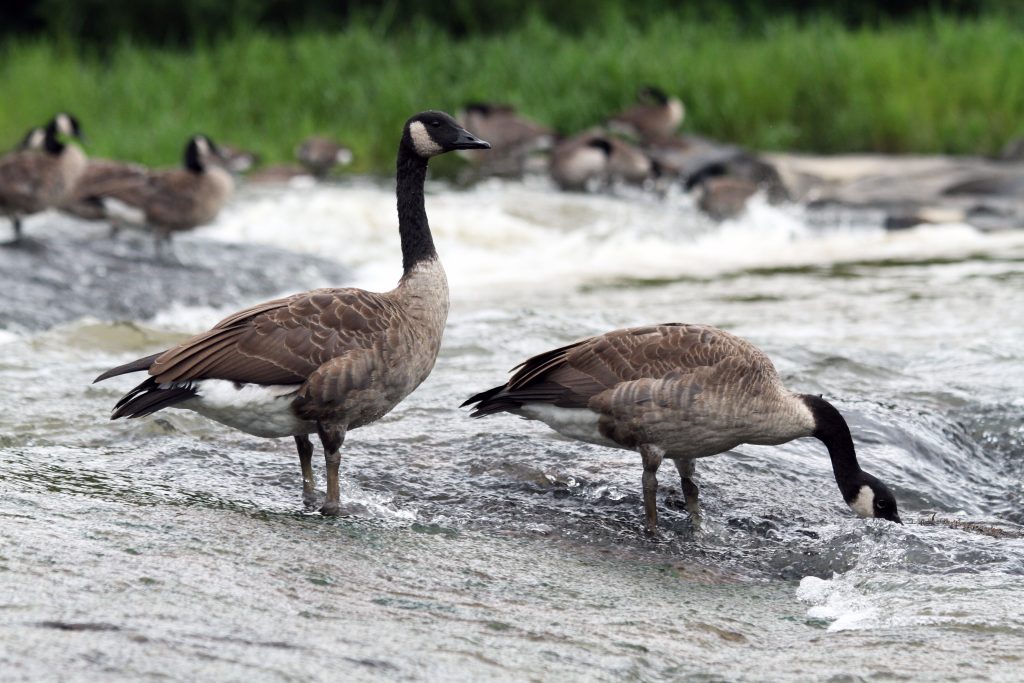
Sound Rivers was created by the merger of two of the state’s oldest grassroots conservation organizations, combining the deep history of advocacy of the Neuse River Foundation, established in 1980, and the Pamlico-Tar River Foundation, established in 1981.
Prior to the founding of these two organizations, people had noticed a fundamental change on the Neuse and Tar-Pamlico rivers. Fish and crab, so abundant in previous decades, had declined. Forests of sea grass had disappeared, seemingly overnight. Fish kills began to be a regular occurrence.
The cause seemed to be cumulative: development, more farming and industry, more wastewater plants along the length of the rivers, from the Piedmont to the Pamlico Sound, were all contributing to the downward spiral of the rivers’ health. Those concerned with the decline they’d witnessed took action, taking the health of the rivers in their own hands, forming these grassroots organizations to serve as watchdogs for the waterways, holding polluters and the state accountable.
Decades later, boards and staff of both organizations understood the issues affecting both rivers were the same, and in 2015, the Neuse River Foundation and the Pamlico-Tar River Foundation merged to become Sound Rivers, strengthening our impact within the state and becoming a powerful advocate for our most cherished waterways.
Our Commitment
March 9, 2023
Our Commitment
Sound Rivers is a nonprofit organization that guards the health of the Neuse and Tar-Pamlico river basins. We work with concerned citizens to monitor, protect and preserve these watersheds that cover nearly one-quarter of North Carolina.
Our Mission
Sound Rivers’ mission is to monitor and protect the Neuse and Tar-Pamlico River watersheds, preserving the health and beauty of the river basins, and the health of the communities that rely on them.
Sound Rivers is committed to the goal of environmental justice and equity for all people in our watersheds. Our work to protect our waters is more successful when our organization represents the full diversity of people living within our watersheds. We recognize the benefits and impact of diverse leadership, building of trust in impacted communities, and inclusive programs ensuring we serve the needs of all those communities within the Neuse and Tar-Pamlico river basins.
We believe all people should have access to enjoyment of the natural world and a powerful voice in decisions that may affect their environment and health. No group of people should bear a disproportionate share of negative environmental consequences, nor should they have less access to beneficial environmental assets.
We acknowledge Sound Rivers has historically been a predominantly white organization. While we are working to change that, we are committed to ongoing activities focused on learning, reflection, adaptation and intentional and focused outreach to diverse communities to ensure our work reflects, respects, engages and includes communities of color.
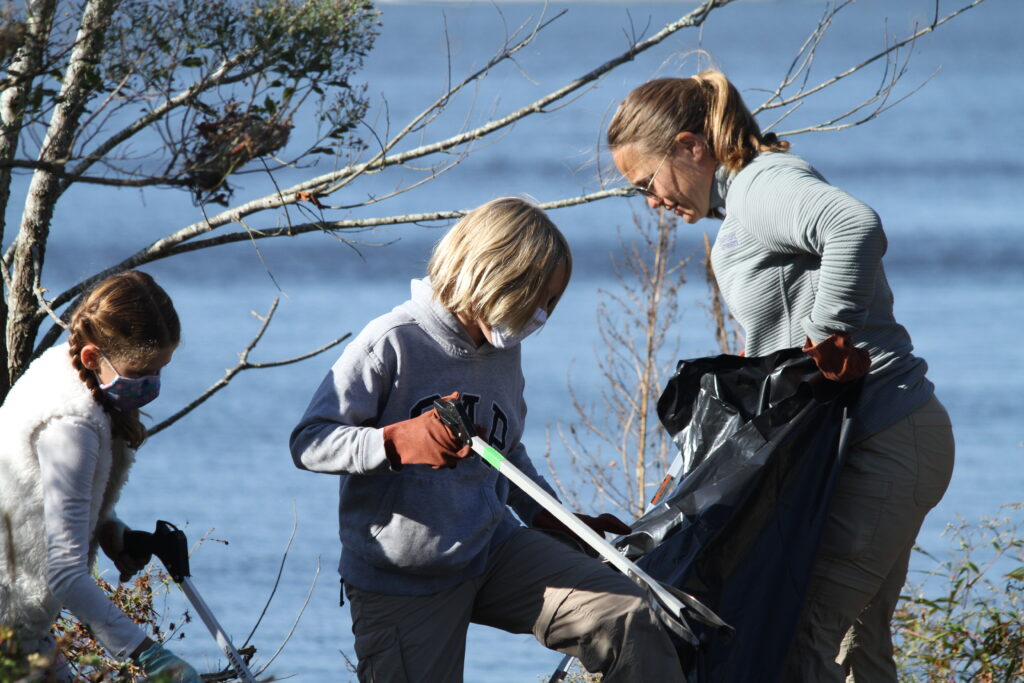
Search
July 7, 2022
Search
Search
Intern spotlight: Will presents "Cool Animals On Our Rivers and How We Protect Them!"
July 29th, 2021
